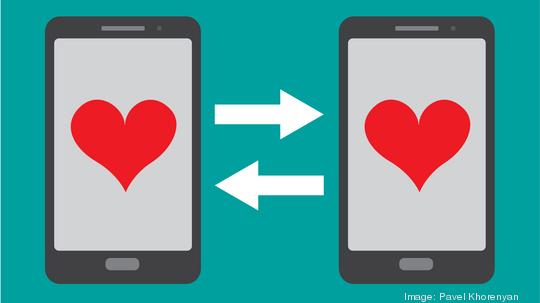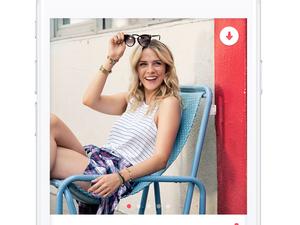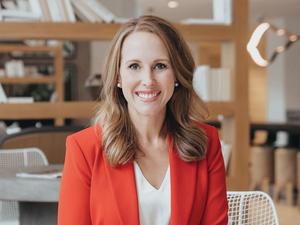
Tired of swiping left and right trying to meet The One? Why not let someone else do it for you? That’s the idea behind Dallas matchmaking startup Single to Shaadi.
Since the company’s launch in 2018 has been growing in popularity among its Southeast Asian clientele. And to further its mission of combining traditional values with the new-found Western cultures of first, second and third-generation people to spread more love, Single to Shaadi’s Founder Radha Patel is gearing up to launch a new dating app.
“I realized, after I tried to dive in further, that everybody is on the apps, but the apps aren’t necessarily getting you to that commitment, or it’s a lot of work, there are games there’s effort, all of that,” Patel told NTX Inno. “One of my really good girlfriends told it to me best. She said, ‘I don’t want to be telling my grandkids that I found my husband while I was on the toilet swiping on an app.’”
Single to Shaadi got its start with Patel being thrown into the role of matchmaker. During the summer, she was approached by several friends, family and others with help finding singles. Being married with children, she couldn’t recommend too many but still wanted to help. So, she started putting together spreadsheets and sending out Google forms of the singles she was contacted by. Before long, Patel realized she had created an entire database of potential matches and Single to Shaadi was born.
“I was just like, ‘Well, let me match the people that I know and that opened up a whole can of worms,” Patel said. “That spiraled until I was like, ‘I need to get more people into this database for this process for this to actually be successful,’ and that’s how I launched into matchmaking.”
Like many other matchmakers, Single to Shaadi aims to find a lifelong match for its customers. Across genders and sexual preferences, users of the company can pay as they go, completing an hour-long interview to get to know their characteristics, then paying only when two matches agree to speak and meet. To create more of a community feel, Single to Shaadi also offers online dating profile curation, dating coaches and style coaches – services customers can use, even if they choose a different dating service.
“We believe that love is love, and I didn’t want finances to be a barrier to who can work with us,” Patel said. “I know where my clients are in their search process and where that fits in with their life cycle.”
While customs and cultures vary widely in Southeast Asia, Patel says one of the main differences between her clients and their parents – who typically are heavily involved in the process, if not the ones making the decisions – is that they have a combined traditional and Western background, making their priorities different. She said her focus is on understanding not just want people are looking for in a match but also what they are looking for in life together with someone 40 years down the road.
“What I’m trying to do is highlight that yeah, we get it. Culturally, it’s all relevant, but I want to match on things that are actually going to be long-term drivers of compatibility,” Patel said.
Many other dating services like Tinder and Match have seen increased use during the pandemic, and Single to Shaadi is no different. Patel attributes this to two reasons. One, while many may have moved online to date, matches ending in marriage aren’t common. Two, with people moving from urban cores back with their parents, the constant question of “when are you going to get married” increasingly gets brought up.
Patel also said she had seen an increase in requests for Single to Shaadi’s services because as the pandemic forced many inside, it also created a captive audience for streaming services. And over the summer, a show called “Indian Matchmaking” began trending. Patel said that the show helped raise awareness of the concept to an American audience. Shortly after it aired, she was inundated with requests from across the country, nearly half of which came from random Google searches.
“When that show came out last year, I was inundated with the leads and the questions because it opened up the concept… every matchmaker, I’m a part of a group, they were getting blown up,” Patel said. “I think what ‘Indian Matchmaking’ showed was, ‘Hey, people in their early 20s early 30s are also looking for alternative ways to meet people and reintroduce the concept.”
As the calls came in, Patel noticed that some of the single’s parents were the ones signing them up, and some other singles were sending off all the information to their parents for approval. So, she developed The Auntie Network. Patel describes it as “not your parent's dating app” The platform, which is expected to launch in early June, adds transparency to the Southeast Asian dating process, openly notifying users that the parents are the ones looking for matches behind the single’s profile.
“It was like, ‘I want to help my daughter, she’s at home, she’s not dating. What do I do?’ And I was like, ‘She is dating, but she’s just online, and you don’t get that.’ That’s also why with The Auntie Network, I want to be like, ‘You don’t get it, so let me put it in your hands so you can see what it’s like,’” Patel said. “They’re there. Why not set something up that empowers them and invites them to be a part of the process? That’s why we’re coming up with a more traditional app version."
Patel said she launched The Auntie Network as a separate entity because she calls Single to Shaadi her “passion.” She hopes to one day find an exit for The Auntie Network via an acquisition by a larger dating app service.
For Single to Shaadi, Patel plans to continue to grow the company, eventually expanding beyond its coverage area in the U.S. and Canada to other countries with large populations of the Southeast Asian diaspora. As it grows, Patel sees the company operating under a franchise model, with associate matchmakers focusing on specific demographics or regions.
“Dating is supposed to be fun, it’s not supposed to be a job or a slog, so I just want to make it better,” Patel said.








